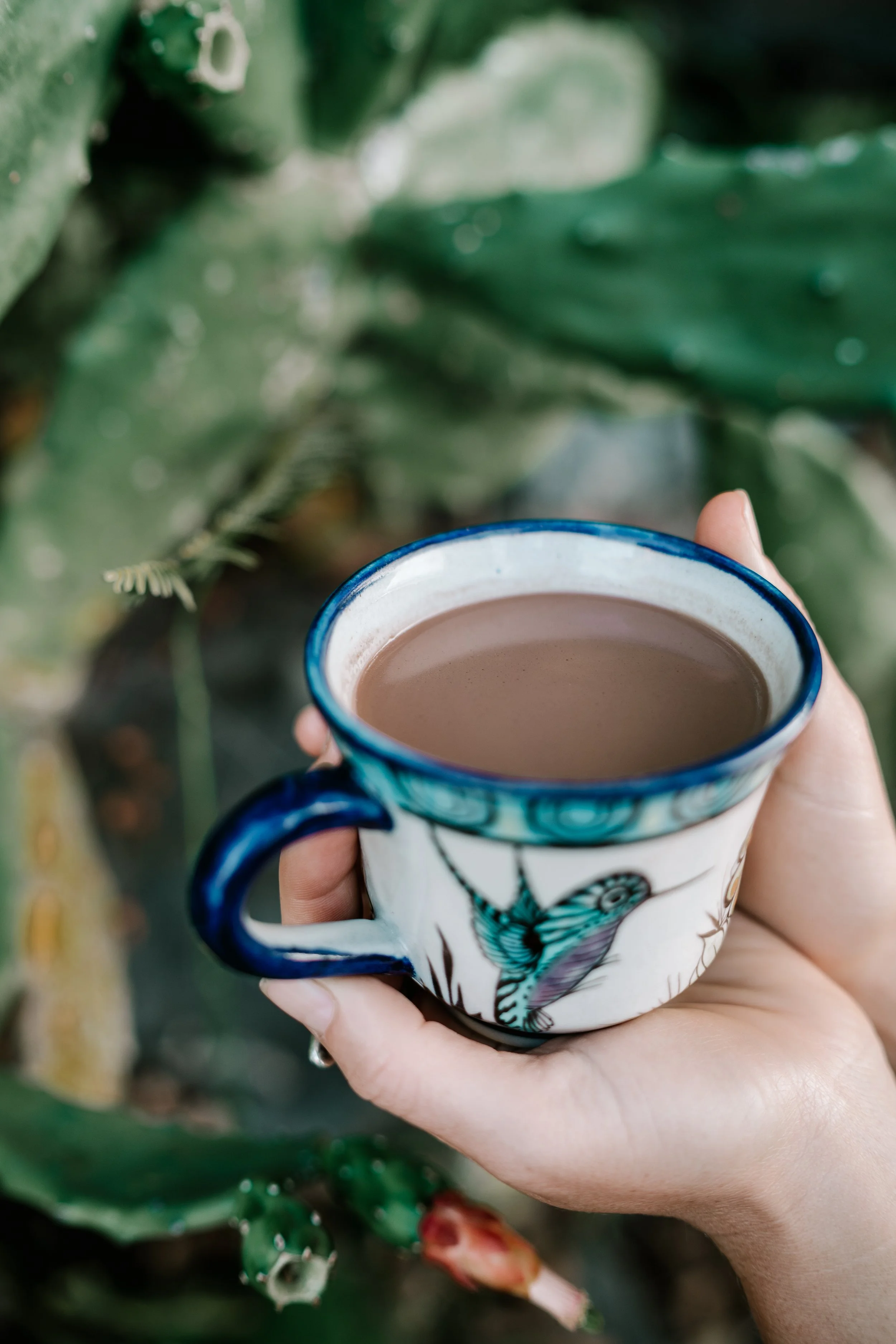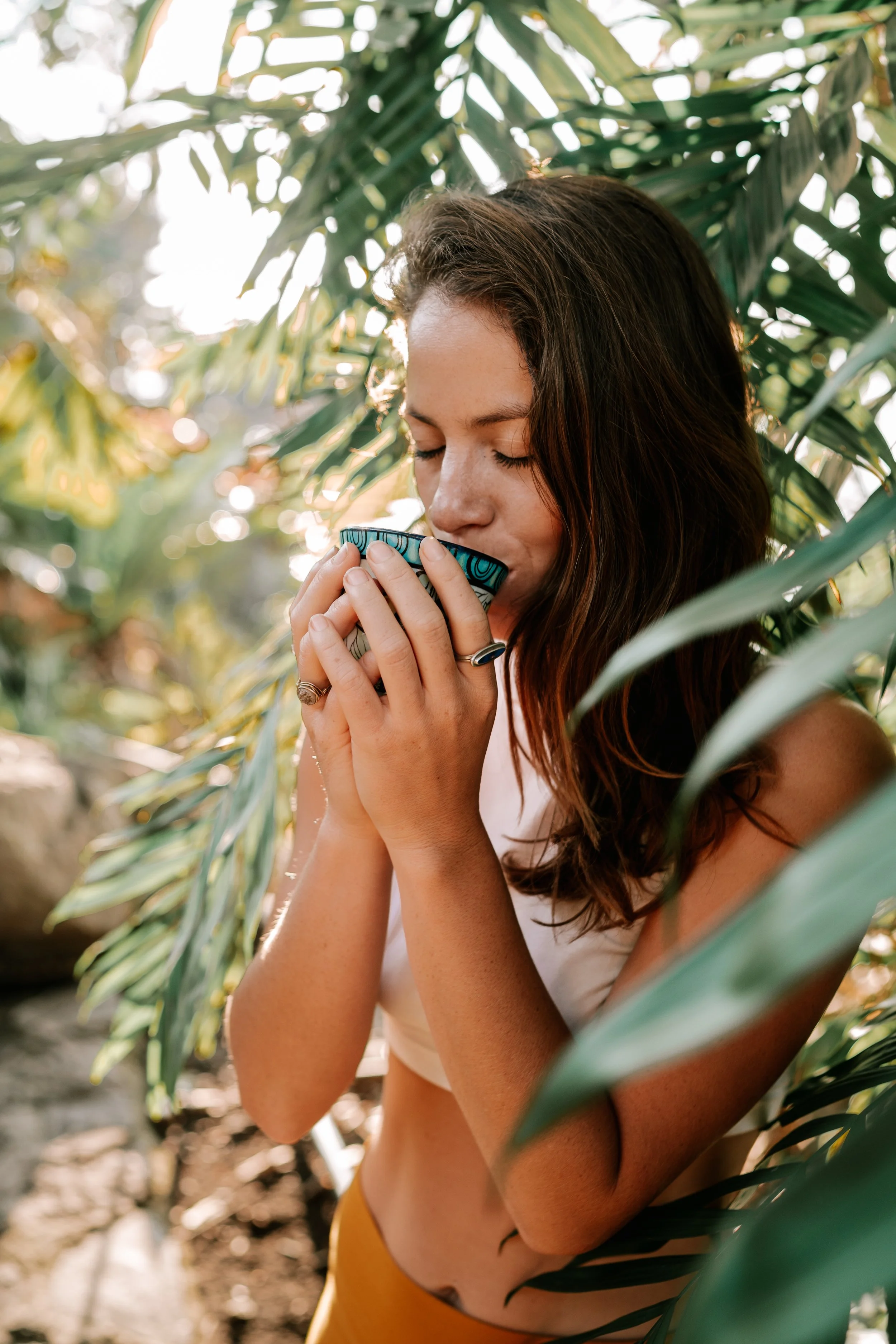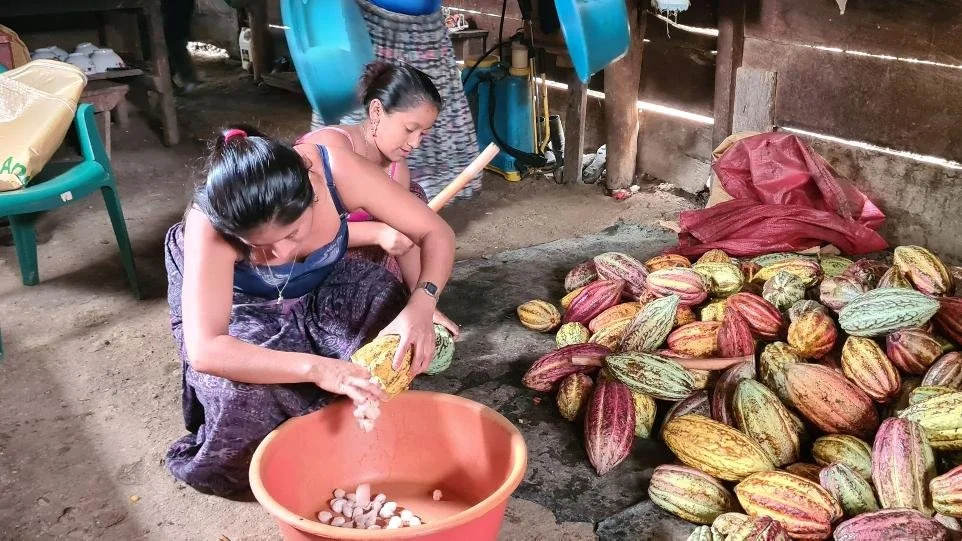CEREMONIAL CACAO
Cacao Blessings
ᨐ
𝘔𝘢𝘺 𝘢𝘭𝘭 𝘮𝘺 𝘵𝘩𝘰𝘶𝘨𝘩𝘵𝘴, 𝘸𝘰𝘳𝘥𝘴, 𝘢𝘯𝘥 𝘢𝘤𝘵𝘪𝘰𝘯𝘴 𝘤𝘰𝘮𝘦 𝘧𝘳𝘰𝘮 𝘵𝘩𝘦 𝘩𝘦𝘢𝘳𝘵.
𝘔𝘢𝘺 𝘐 𝘣𝘦 𝘳𝘰𝘰𝘵𝘦𝘥 𝘪𝘯 𝘵𝘩𝘦 𝘦𝘯𝘦𝘳𝘨𝘺 𝘰𝘧 𝘵𝘳𝘶𝘦 𝘭𝘰𝘷𝘦 𝘰𝘯 𝘵𝘩𝘪𝘴 𝘥𝘢𝘺 + 𝘦𝘷𝘦𝘳𝘺 𝘥𝘢𝘺.
𝘒𝘦𝘦𝘱 𝘮𝘦 𝘪𝘯 𝘵𝘰𝘶𝘤𝘩 𝘸𝘪𝘵𝘩 𝘔𝘰𝘵𝘩𝘦𝘳 Nature + 𝘵𝘩𝘦 𝘖𝘯𝘦 𝘏𝘦𝘢𝘳𝘵 𝘵𝘩𝘢𝘵 𝘣𝘦𝘢𝘵𝘴 𝘸𝘪𝘵𝘩𝘪𝘯 𝘰𝘶𝘳 𝘤𝘰𝘭𝘭𝘦𝘤𝘵𝘪𝘷𝘦 𝘤𝘦𝘯𝘵𝘦𝘳.
𝘛𝘩𝘢𝘯𝘬 𝘺𝘰𝘶 𝘧𝘰𝘳 𝘺𝘰𝘶𝘳 𝘨𝘪𝘧𝘵𝘴 𝘰𝘧 𝘱𝘳𝘰𝘴𝘱𝘦𝘳𝘪𝘵𝘺 𝘢𝘯𝘥 𝘢𝘣𝘶𝘯𝘥𝘢𝘯𝘤𝘦.
ᨐ
“May the Heart of the Sky be in my heart.
May my heart be in the Heart of the Earth.
May the Heart of the Earth be in my heart.
May my heart be in the Heart of the Sky.”
— Mayan Prayer
1 lb blocks of Guatemalan Cacao paste are available for order!
VARIETIES IN STOCK
Springs
Entre Nubes
Cahabon
Las Marias
$55 / lb USD + shipping
Venmo ———-———— @megankenson
Zelle ———- megankenson@gmail.com
PayPal —-—— paypal.me/megankenson
*send ‘friends + family’ or will incur additional fee
SPRINGS
Springs Cacao was named in a moment of astonishment. We were standing there, in a valley covered with a lush variety of trees: coffee, zapotillos, bananas, and so many others. An agroforestry dream. By our side, Juan, grandfather in the family, told us there are 4 springs there, embedded in the delicious curves of this mountain jungle, at 400 m facing the Pacific coast. But there is more than one step to a true astonishment. Moments later– we couldn’t believe what we heard– Juan was explaining that he remained organic because he never had enough money to buy the fertilizers that are suggested as a norm of success in that region. Synchronistic epiphany:
“Your cacao is the best we’ve tried in a while,” we told him. “We will help you share this treasure to the world”. His smile underlined our joy: magic happened. Springs cacao magnifies a deep bitterness with coffee and banana accents. Its fat content surpasses most cacaos in the world due to the abundance of water in the village of “Las Victorias” where it grows. Also because it’s genomic lineage was preserved from industrial hybridization.
Local hybrid strains
Fermented for 10 days in a small wooden box covered with banana leaves
Family-owned isolated land
Diverse agroforesty ecosystem
Proximity with coffee plantations and semi-wild ecosystems
Proximity with multiple springs
Altitude 400m
Suchitepequez region
ENTRE NUBES
“Entre Nubes” means between clouds which is a reference to COBAN where FEDECAVERA, the organization behind this origin is located. The cacao in grown between mountains and clouds in the region of Alta Verapaz. The cacao comes from small-scale indigenous owned farming land, produced in an organic and diverse way.
FEDECAVERA supports over 33,000 farming families in a second level type organization. This means each farmers have a vote in their cooperative and each cooperative have a vote in the organization. Services received from FEDECOVERA which we can mention: permanent technical assistance, access to organic agricultural inputs, access to credit, health services, permanent training, among others, in this way added value was achieved to the supply chain by promoting fairer conditions for small farmers, having better quality control, and guaranteeing full traceability.
Type of environment : The cacao tree is grown in the tropics in a band between 10°C-20°C north and south of the equator. The Cacao Bean is the dried and fully fermented fatty seed of cacao tree fruit.
Region : Alta Verapaz
Land size : 267 hectares
Cacao Trees : 27ha de cacao
Ownership : 2 level Organization - Each farmers have a vote in their cooperative and each cooperative has a vote in FEDECOVERA
Workers : 33,000 family producers within 43 cooperatives and over 120 associations
ULLULAWL
This ancestral cacao is the product of ´´Tuqtuquilal´´, a regenerative center that uses reforestation to empower cacao. The collective is focusing on the exchange of information to develop sustainable living solutions for the benefit of the local Q’eqchi community and visitors alike. The center is a start-up non-profit that grows organic cacao.
This cacao is grown in the mountain region of Alta Verapaz, close to the famous waterfalls of Semuc Champey, and at the mouth of the Lanquin River.
The collective’s focus on breed selection allows them to distribute highly aromatic criollo hybrid beans that are carefully fermented, dried, selected, and processed.
Selected local criollo Hybrids
Fermented for 9 days in large wooden cases
Permaculture impact center
Farmers cooperative involving 60 families
Mountian-side cacao forests
Altitude 400-600m
Alta Verapaz region
LAS MARIAS
It all started with an idea born of love. The founders wanted a project that reflected how beautiful Mother Nature is and the impact you can have if your actions are based on “love”. This principle is the basis of their core values. In Kampura, love means treating the land, the people, the community and the environment with kindness.
They ensure that the cacao meet this quality before leaving their facilities. That's why they've implemented their own quality labs to ensure consistency from year to year. Their plantations are recognized as the best in the region. They have been awarded by the National Forest Institute (INAB) as the best agroforestry plantation.
CAHABON
Cahabon is a small town in Alta Verapaz, it is known for its beautiful river that connects the town to the famous Semuc Champey Park. The area is filled with small-scale Q´eqchi´ farming families between mountains and beautiful views. Communities are collaborating, empowering each other, and giving a hand to their neighbors. This community culture has supported an abundant cacao production area.
The origin is supported by a local foundation and Dokeshi project which provides extra support in the fields, social initiatives such as a dentist program and direct trade with highest payments to farmers in the region. This cacao origin is originally grown in a food sovereignty program for the Q´eqchi´ community. The primary goal is for the farming families to provide nutritious meals for themselves and cacao is a surplus to the activities. They grow the cacao with copal, canela, cardamon, citrus trees, corn, plantain and much more.
Genetics : Blend of local hybrids
Flavor profile : Balanced
Fermentation : 7 days in large woden box
Type of environnement : Small villages on mountain side valley. Young fruit forest gardens, proximity with many viviendas, surrounded by wilderness
Region : Alta Verapaz
Altitude: 300m
Land Size : About 40+ hectares from a variety of families
Specificities : Cacao forest mixed with Q'eqchi village
Ownership : 54 Q'eqchi families organized in a cooperative, managed by a regenerative center







